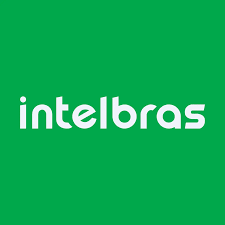
Configuring Intelbras as a Source
In the Sources tab, click on the “Add source” button located on the top right of your screen. Then, select the Intelbras option from the list of connectors. Click Next and you’ll be prompted to add your access.1. Add account access
You’ll need to provide credentials to connect to your Intelbras controller. The following configurations are available:- IP address: The IP address of the controller (e.g. 192.168.1.100).
- Port: The port of the controller (e.g. 8080).
- Username: The username to authenticate against the controller (e.g. admin).
- Password: The password to authenticate against the controller.
- Start Date: The earliest date from which records will be synced.
2. Select streams
Choose which data streams you want to sync - you can select all streams or pick specific ones that matter most to you.Tip: The stream can be found more easily by typing its name.Select the streams and click Next.
3. Configure data streams
Customize how you want your data to appear in your catalog. Select a name for each table (which will contain the fetched data) and the type of sync.- Table name: we suggest a name, but feel free to customize it. You have the option to add a prefix and make this process faster!
-
Sync Type: you can choose between INCREMENTAL and FULL_TABLE.
- Incremental: every time the extraction happens, we’ll get only the new data - which is good if, for example, you want to keep every record ever fetched.
- Full table: every time the extraction happens, we’ll get the current state of the data - which is good if, for example, you don’t want to have deleted data in your catalog.
4. Configure data source
Describe your data source for easy identification within your organization, not exceeding 140 characters. To define your Trigger, consider how often you want data to be extracted from this source. This decision usually depends on how frequently you need the new table data updated (every day, once a week, or only at specific times). Optionally, you can determine when to execute a full sync. This will complement the incremental data extractions, ensuring that your data is completely synchronized with your source every once in a while. Once you are ready, click Next to finalize the setup.5. Check your new source
You can view your new source on the Sources page. If needed, manually trigger the source extraction by clicking on the arrow button. Once executed, your data will appear in your Catalog.Streams and Fields
Below you’ll find all available data streams from Intelbras and their corresponding fields:Access Logs
Access Logs
Stream for managing access logs from the controller.Key Fields:
RecNo- Unique identifier for the recordCreateTime- Timestamp of when the log was createdUserID- ID of the userCardNo- Card number used for accessDoor- Door or access point identifierMethod- Access method used (e.g., card, password)Status- Status of the access attempt (e.g., success, failure)Type- Type of eventAttendanceState- State of attendanceCardName- Name associated with the cardCardType- Type of the cardErrorCode- Error code if the access failedMask- Mask statusNotes- Additional notesPassword- Password used for accessReaderID- ID of the reader deviceRemainingTimes- Remaining access timesReservedInt- Reserved integer fieldReservedString- Reserved string fieldRoomNumber- Room number associated with the accessURL- URL related to the eventUserType- Type of the user
Use Cases for Data Analysis
This guide outlines a valuable business intelligence use case when consolidating Intelbras data, along with a ready-to-use SQL query that you can run on Explorer.Security Monitoring
1. Monitoring Access Events
Track access events to monitor who is accessing your facilities, when, and where. Business Value:- Enhance security by monitoring access in real-time
- Identify unauthorized access attempts
- Keep a historical record of all access events for auditing purposes
SQL code
SQL code